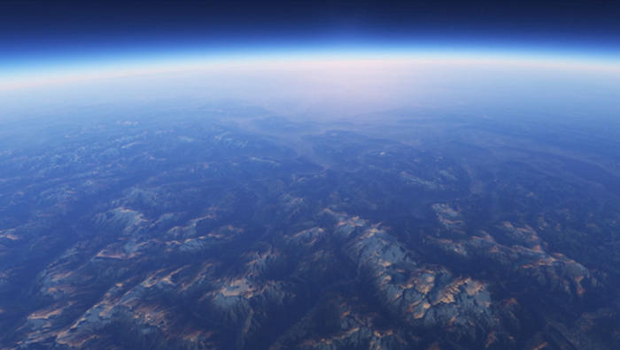While Maps is far and away the most popular tool for traversing the globe, Google hasn’t forgotten about its other project, Earth. And just in time for Earth Day, Google is giving it a major upgrade.
In an event at the Whitney Museum of Art in New York City, Google took the wraps off the new Earth project for Android and Chrome. The fruits of nearly two years of labour, the new app’s marquee feature, called Voyager, enhances the way you explore the planet, adding tours guided by “some of the world’s leading storytellers, scientists, and nonprofits”.
For example, you can now take a journey though through jungles with BBC Earth or learn about chimpanzees in Gombe National Park from Jane Goodall. Google says there are “more than 50 immersive stories in Voyager, and more added weekly”. Google also added a fun new ‘I’m feeling lucky’ button into Google Earth, which will take you to a random locale chosen from some 20,000 curated places. Once you’ve landed, a Knowledge Card will teach you history and facts about it. Additionally, you’ll now be also to share you favorite places with friends by sending a Postcard.
Also new to Google Earth is some serious 3D and VR enhancements. While Daydream support is still notably absent, you can now search in Earth VR and explore new places like the Neuschwanstein Castle in Germany, Table Mountain in South Africa, Perito Moreno Glacier in Argentina, and dozens of others. On the 3D front, you can “swoop around the Grand Canyon and see geological layers, or check out the majestic architecture and pristine grounds of the 500-year-old Château de Chambord in the Loire Valley in France.” Earth VR has also expanded beyond the HTC Vive to include Oculus Rift support.
The new Google Earth is available on the Web in Chrome and is rolling out to Android phones this week. It will hit iOS and other browsers “in the near future”.
While the new Google Earth features are certainly cool, we were really hoping to see Daydream support for Earth VR. Hopefully Google will bring support soon, but with both of the platforms supported needing some serious hardware, it might be a while before it comes to a phone-based headset.
IDG News Service







Subscribers 0
Fans 0
Followers 0
Followers